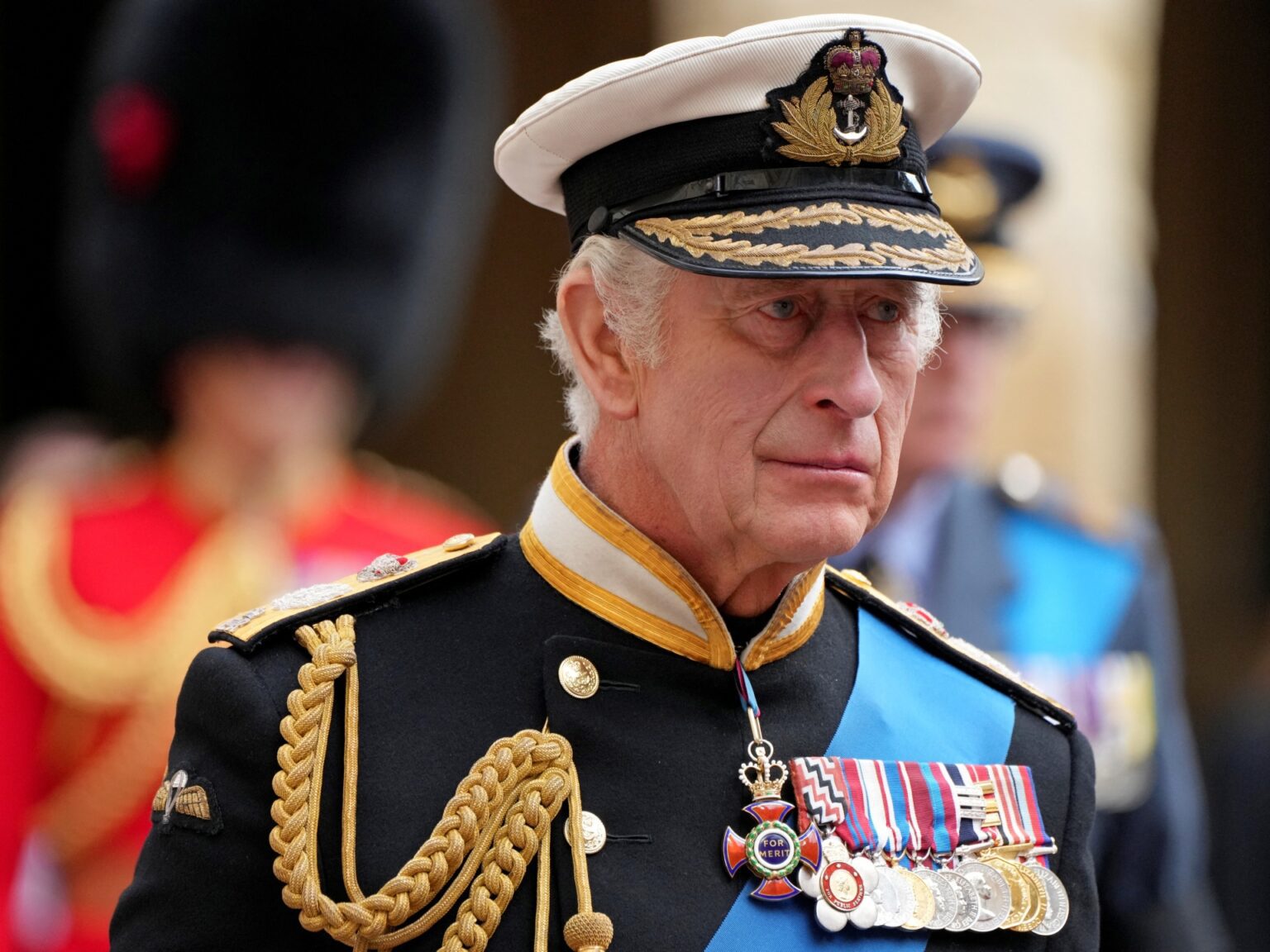Global Courant 2023-05-03 16:02:32
Glasgow, United Kingdom – The coronation of King Charles III – and his wife, Camilla, the Queen’s consort – will at first glance reflect a modern Britain completely at ease with itself – and its past.
Leaders of Buddhists, Hindus, Jews, Muslims and Sikhs will attend the centuries-old ceremony at Westminster Abbey in London for the first time.
In attendance are British Prime Minister Rishi Sunak – the first British Asian and Hindu to hold Britain’s top job – and Humza Yousaf, the newly elected First Minister of Scotland and the first ever Muslim head of government of a Western democracy. .
But behind the pomp and circumstance will remain questions about the monarchy’s ties to Britain’s (often bloody) colonial past and its days of Empire, not least among the country’s large Anglo-Asian population. UK.
“Absolutely not,” Aamir Darr, a bookseller from England, replied when Al Jazeera asked the Pakistan-born 62-year-old if he would watch coverage of the coronation on television on May 6.
“If (King) Charles wants to admit to this, it has to come out of his own pocket,” declared the founder of the Multicultural Bookshop in Bradford – a city with the second largest Asian community in England and Wales.
“We are in the middle of a cost of living crisis where people can barely put food on the table. During Ramadan, over the last few years in Bradford, I know people who couldn’t put food on the table for them and their families.”
For Darr, the impending inauguration of Charles as Britain’s new head of state, following the death last year of his mother, Queen Elizabeth II, is mainly linked to the ongoing controversy over Britain’s colonial past.
Queen Elizabeth’s coffin is carried from Westminster Abbey on the day of her state funeral and burial in London (File: Hannah Mckay/Pool Photo via AP)
The British Empire
During this period, when the sun was popularly said to never set on the British Empire, the British monarchy amassed great wealth and power through the plunder of colonies in regions such as the Indian subcontinent.
During her 70-year reign – “in whose name unspeakable deeds have been performed even after the formal end of colonialism” – Queen Elizabeth II was, before her death in September 2022, the most recent keeper of the British crown jewels, including the 105-carat Indian Kohinoor diamond, which was given to Queen Victoria in the mid-19th century after being seized by the British East India Company.
“The British monarchy, as the main political establishment of overseas British power in the era of colonial expansion, was highly central to the colonial experience, its expression and forms of power,” said William Gould, a professor of Indian history at the University of Leeds in England, Al Jazeera told.
“More generally, the maintenance of Britain’s greater international dominance, including for at least two centuries, its involvement in the slave trade, was sanctioned by the Crown, which, by granting monopolies and shares, also often benefited directly from those trade.”
Decades after the end of the British Empire, which lasted from the 17th to the 20th century, many Britons of South Asian descent still struggle with this monarchical legacy. And as the coronation approaches, many are rethinking what it means to be a British-Asian – and how to deal with coronation day itself.
“I grew up (in England) with (South Asian) grandparents who had a lot of respect for the royal family – my grandmother was a real royalist and held the queen in high esteem,” said a London-based head teacher of Sri Lankan descent, who spoke to Al Jazeera on condition of anonymity.
“My grandparents felt that Britain offered them and their children great opportunities, particularly in terms of education,” she said.
“I think now, years later, my family and I understand more about the negative consequences of what happened, so we have mixed feelings. The idea that the royal family acquired much of their wealth through colonization sits uneasily alongside our own family’s personal gain from moving to Britain.
Still, such concerns won’t stop her from turning coronation day into an excuse to socialize with family and friends, despite her own growing misgivings about an institution she associates today with “more memories of my grandparents and memory of my childhood”.
“A coronation street party is being held on my parents’ street,” she added.
“Since COVID times, our neighborhood has become better known and connected, and for me this gathering will be more about spending time with our friends in the neighborhood, who took such loving care of each other in 2020.”
But like Aamir Darr, other British residents of South Asian descent will give Coronation Day a wide berth.
Gauri Raje was born in Mumbai, India in 1971, but today lives in Argyllshire, a sprawling county on Scotland’s breathtaking west coast.
The Scottish-Indian storyteller, educator and workshop facilitator told Al Jazeera that the “outdated… pomp and symbolic pageantry” of the forthcoming coronation is not a spectacle she will tune into.
“I suppose in terms of historical justice I have mixed feelings about the monarchy and its relationship with India. There are still a lot of reparations and a lot of apologies to be made (from the monarchy),’ she said.
Gauri Raje was born in Mumbai, India in 1971 but currently lives in Argyllshire (Courtesy: Gauri Raje)
But no member of the royal family has ever formally apologized for the institution’s role in Britain’s controversial past.
Last month, however, King Charles, who, like his mother before him, is also the head of the so-called Commonwealth, which includes Nigeria, India and Pakistan, announced his intention to launch an independent inquiry into the former relationship of the support British monarchy. with the transatlantic slave trade.
But, said Professor Gould, the facts can never be changed: not least that “most Britons…with a Commonwealth background, (have) a history of attachment to the UK (which) grew out of a history of colonial rule, accompanied… by examples of violence” all carried out in the name of the British monarchy.
And for many Britons with South Asian heritage, and even those without, no amount of Coronation Day celebrations can ever change that.








